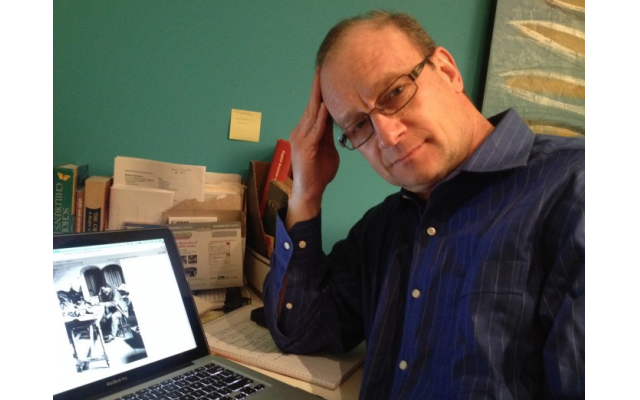An Ominous Forecast to Begin a New Year
Given trends in anti-Semitism, should American Jews be concerned about something "worse" than Pittsburgh?
Dave Schechter is a veteran journalist whose career includes writing and producing reports from Israel and elsewhere in the Middle East.
We begin 2019 by looking back at the worst Jewish moment of 2018.
Without minimizing the discomfort of hearing the alt-right chant “Jews will not replace us” in Charlottesville, Va., the murder of 11 worshippers at the Tree of Life-Or L’Simcha Congregation in Pittsburgh on Shabbat morning Oct. 26 terrified American Jewry.
That is where “CBS Sunday Morning” began its Dec. 9 report titled “The longest hatred: Anti-Semitism on the rise.”
The last sound bite in the piece, from Deborah Lipstadt, the Dorot Professor of Modern Jewish History and Holocaust Studies at Emory University, grabbed my attention.
“I never thought I would live to see the day where I’d be protected in a synagogue in America. And it’s gonna get worse; it’s gonna get worse,” Lipstadt said.
The sight of police stationed outside synagogues had ceased to surprise me long before Pittsburgh. Their presence, a sad commentary in itself, is nonetheless reassuring.
Still, “worse”?
“I don’t like to predict,” Lipstadt said, responding to a query. “So my statement about it getting ‘worse’ is generalized. However, I think that there are many people in the U.S., particularly groups on the far right, that feel emboldened and free to act in an anti-Semitic manner. Maybe not shooting up a shul, but still … And on the left, the BDS [boycott, divest, sanctions] ‘Israel is always wrong group’ also feels more emboldened. They are pushing their agenda in a far stronger fashion than we had seen previously.”
Lipstadt explores these issues and others, including the role played by those who enable exponents of Jew hatred, in “Anti-Semitism: Here and Now,” her latest book, scheduled for release in January.
“I don’t believe the absolute numbers of anti-Semites are rising at any major rate in the U.S., but I believe that the current climate gives existing anti-Semites a sense of permission to express it,” said Paul Root Wolpe, director of the Emory Center for Ethics.
Wolpe suggested that the BDS movement “contributes to an anti-Israel climate that bleeds over into the far right in a generalized sense of grievance and permission to attack and denigrate Jews.”
Allison Padilla-Goodman, Anti-Defamation League Southeast regional director, monitors these trends. “Anti-Semitism is entering the mainstream in ways that we haven’t seen before, whether it be openly anti-Semitic candidates running for public office, anti-Semitic white supremacists moving into public spaces, or frequent anti-Semitic incidents in schools,” she said.
If the far right doesn’t like Jews and the far left doesn’t like Israel – and seemingly cannot understand how anti-Zionism can drift into anti-Semitism – and both feel emboldened, must we contemplate what “worse” might entail?
Lauren Menis, a co-founder of the Atlanta Initiative Against Anti-Semitism, sees no leveling off of anti-Semitism, “So we must assume that things are going to get worse and act accordingly. We must stand up to hate and make it known that it’s not okay in our neighborhood, city or state,” Menis said.
“We must be as loud as they are, and we must stand as one community. And yes, this probably sounds idealistic, but it’s the only way I can see to stop this. Because somehow it’s become acceptable to spout hate, and I believe once people feel that their positions are somehow acceptable, our society’s moral compass shifts and then you start to see things like the Pittsburgh shootings.”
The shootings at Tree of Life were a personal tragedy for Eric Robbins, the president and CEO of the Jewish Federation of Greater Atlanta, who grew up in the Squirrel Hill neighborhood of Pittsburgh.
“We clearly need to continue to make security the priority but stay optimistic that the U.S. is an incredible place to live as a practicing Jew and somehow find the balance between being secure and being welcoming. The Pittsburgh tragedy should make us stronger and more resilient and prouder,” Robbins said.
Coming from a scholar with Lipstadt’s credentials, even a generalized forecast of “worse” is an ominous way to begin the year.




comments